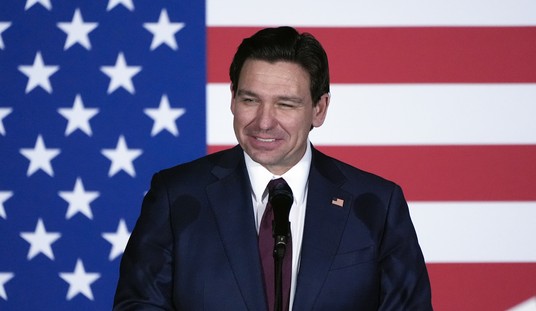For years, Clinton has headed into the bunker when people asked about her position on this policy question. It’s something that has the environmental left sort of uneasy as the 2016 season begins to pick up the pace.
It’s the Keystone Pipeline.
Some in the green corner are torn between pushing the former secretary of state to state her opinion on the multi-billion dollar project, and supporting Clinton based on her overall record in fighting global warming (via Politico):
Major environmental groups are prepared to go easy on Clinton over the issue, looking to her overall as a champion on their issues, especially climate change. But the outside-the-Beltway grassroots groups that the pipeline fight has awakened see Keystone as just the first of a series of fossil fuel disputes where they want Clinton to declare her allegiance, including future battles over fracking, Arctic drilling and natural gas exports.They more adamant activists say the green base is a force that she can’t afford to ignore.
“Activists who are the ones that will turn out for her events and donate money are the ones who will also see the gap of her talking about climate change and yet (if she does) supporting tar sands and fracking,” said Jane Kleeb, founder of the anti-Keystone group Bold Nebraska. She added that Clinton “needs to visit with us and hopefully not listen to some of the DC lobbyists who I just know are saying ‘they will vote for you anyway, what other option do they have?’”
Bill Snape, senior counsel of the Center for Biological Diversity, said his group is not “taking any electoral stands” on Keystone. But it wants Clinton to declare her position, calling the pipeline “a microcosm of other fossil-fuel issues where she might cave.”
“What we are saying is: the public has a right to know where the leading Democratic presidential contender stands on the greatest American fossil fuel flashpoint ever,” he said by email. “Keystone is the pivot: we are moving either toward or away from these types of dirty oil pork barrel projects.”
Recommended
The publication also mentioned the pickle Al Gore found himself in during the 2000 presidential election. It concerned an airport project near the Everglades. Gore chose not to comment on the project until the Clinton administration finished their review. The administration did reject the project, but not after Gore’s response caused uproar among greens in Florida, prompting over 90,000 of them to vote for Ralph Nader in protest. Even Gore admitted his cautious position might have cost him the state.
Yet, it was probably gun control that truly cost Al Gore the election. If you take the electoral votes of West Virginia, Arkansas, and Tennessee–Gore’s home state–the then-vice president would have won 288 electoral votes with Bush still winning Florida. Those three states were ones credited to voting for Bush due Gore trying to unnecessarily out-gun control New Jersey Sen. Bill Bradley in the 2000 primaries.
Yet, unlike the airport scenario Gore faced, maybe Clinton could continue to remain silent on Keystone. After all, if the pipeline isn’t built, its energy yields are still be transported by rail, as Robert Bryce of the Manhattan Institute wrote in Slate two years ago:
When it comes to the flow of northern crude to U.S. refineries, here’s the reality: No Keystone XL? No problem.While opponents of the pipeline have been rallying their supporters, U.S. and Canadian railroads have been hauling record amounts of oil. Last year, the volume of oil delivered by rail in the United States jumped by about 46 percent compared with 2011. According to the Association of American Railroads, oil-related rail traffic increased in Canada by 30 percent. In December, U.S. and Canadian railroads were hauling about 1.9 million barrels of oil and refined products per day, double the volume moved in 2009. Of that total, about 1 million barrels per day is being railed in the United States.
The Keystone XL is designed to transport 830,000 barrels per day. Over the past two years or so, domestic railroads have increased their transport capacity by an amount equal to about 55 percent of what Keystone is supposed to provide.
There’s nothing new in moving oil by rail. In the late 1860s, John D. Rockefeller began investing in railroad tanker cars, a move that saved him the cost of building barrels to hold his product. The oil baron’s control over the Cleveland-area refining market allowed him to negotiate favorable shipping rates with the railroads.
U.S. and Canadian oil producers aren’t waiting for the Keystone XL or other pipelines; they are building rail-car terminals so they can ship their product to market. In North Dakota alone, oil producers have built rail terminals capable of handling nearly 1 million barrels of oil per day.
Still, transport by rail increases greenhouse gas emissions by nearly 30 percent, whereas the pipeline virtually has no environmental impact. Also, it's "very unlikely" the Ogallala Aquifer, a vital source of freshwater for the Plains states, will be affected. This was all included in the State Department report, which “raised no major environmental objections,” according to the Associated Press. While it will only create 50 jobs once it’s operational, the pipeline would create 42,000 construction jobs over a two-year period. The project stretches over a thousand miles.
So, given that the oil is already getting here by rail, it’s possible the Clinton camp faces more risk in speaking for it than against it, whereas Republicans can strongly say they’re for its construction, and the tens of thousands of jobs this project will create–even if they’re temporary–since it will not bring about the apocalypse.

























Join the conversation as a VIP Member